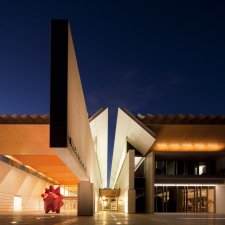- About us
- Support the Gallery
- Venue hire
- Publications
- Research library
- Organisation chart
- Employment
- Contact us
- Make a booking
- Onsite programs
- Online programs
- School visit information
- Learning resources
- Little Darlings
- Professional learning
Edmund Jowett (1858-1936), pastoralist, businessman and politician, learned the wool trade in Yorkshire before arriving in Melbourne in 1876. Soon he became the wool expert of the Australian Mercantile Land and Finance Co. Ltd. He had emigrated without capital, but from 1886 he gradually acquired pastoral properties until he controlled more than forty, covering about two and a half million hectares. Specialising in developing unimproved land, he promoted woollen-manufacturing, instituted 'Wool Week', and headed a 'Use More Wool' committee. In 1916 he was appointed growers' representative on the wartime Central Wool Committee and subsequently served in a similar capacity on the Commonwealth Bureau of Commerce and Industry and on the Victorian Meat Advisory Committee. He took no active part in politics until his younger son died in action overseas; then, he began to campaign for conscription on the Darling Downs. Winning the seat of Grampians for the National Party in 1917, in early 1920 he was chosen as deputy leader of the new Country Party, of which he remained an active member for life. Jowett was Australian president of the British Immigration League from 1916. His publications included The Unnatural Fall in Prices Due to Currency Legislation (1895), The Ruinous Fall in the Prices of Produce and the Prevailing Scarcity of Money (1894), Electoral Reform for Australia (1917) and Proportional Representation for the Senate (1919). Upon his death he was credited by the Bulletin with having owned more sheep than anyone else in the world.
‘Boz’ contributed caricatures to illustrated papers and magazines for years before revealing herself to be a woman, Annie Hope Campbell, in 1916.
Collection: National Portrait Gallery
Purchased 2012



On one level The Companion talks about the most famous and frontline Australians, but on another it tells us about ourselves.



Visit us, learn with us, support us or work with us! Here’s a range of information about planning your visit, our history and more!



We depend on your support to keep creating our programs, exhibitions, publications and building the amazing portrait collection!